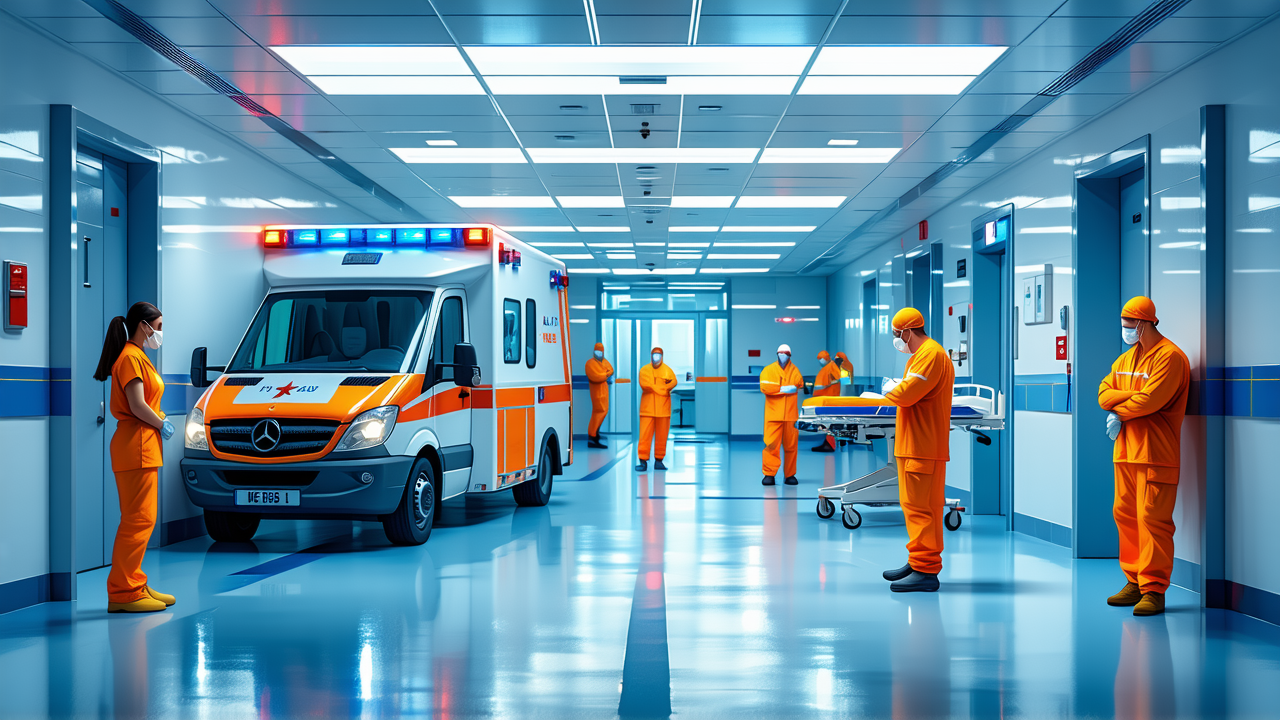Understanding Ambulance Costs and Emergency Triage in New Zealand
Understanding Ambulance Costs and Emergency Triage in New Zealand
In New Zealand, calling an ambulance can be a life-saving action—but it also comes with significant costs. This article explains the financial implications, the triage system used in emergency departments, and what people should know before calling for help.
How Many Ambulance Calls Are Made Annually?
According to data from Hato Hone St John, New Zealand’s primary ambulance provider, the organization responded to over 450,000 emergency calls in 2024. This highlights the critical role of ambulance services in the country’s healthcare system.
When Should You Call an Ambulance?
Police and health authorities recommend calling 111 immediately in situations such as:
- Difficulty breathing
- Chest pain (e.g., angina)
- Loss of consciousness
- Severe mental health crisis
- Stroke symptoms (e.g., sudden weakness, vision problems, speech difficulties)
- Severe pain or heavy bleeding
How Does the Emergency Response Work?
The emergency medical system consists of three components: ground ambulance services, air ambulance (helicopter) services, and a central dispatch center that coordinates both. In most parts of the country, Hato Hone St John provides ambulance services, while Wellington has a local free ambulance service.
Where to Go for Emergency Care?
Most large public hospitals have an emergency department (ED), which operates 24/7 with on-call doctors. However, private hospitals typically do not handle emergency care, and insurance may not cover the associated costs.
When to Go to ED vs. Call an Ambulance
While EDs are reserved for life-threatening conditions, they may not be the best option for less severe issues. If the patient is near an ED and the situation is critical, it may be appropriate to go directly. Otherwise, calling 111 is the preferred route.
Who Pays for Ambulance Services?
Emergency ambulance services are not free in New Zealand. For example, Hato Hone St John charges approximately $125 per call for citizens and residents, with the cost fully covered by ACC within 24 hours of an injury. International visitors or short-term visa holders may be charged up to $800 per call.
Why Might You Wait After Arriving at the ED?
Emergency departments use a triage system to prioritize patients based on the severity of their condition. In New Zealand, this system follows the Australian Triage Scale, which categorizes patients into five levels, from 5 (least urgent) to 1 (most urgent). Patients at level 5 may wait up to two hours, while level 1 cases are treated immediately.
What About the Cost of Emergency Care?
Emergency care costs vary significantly depending on the patient’s status. For international visitors, a single emergency care visit can cost at least $566.72, with additional fees for services such as CT scans, blood tests, and interpreters.
Are There Specialized EDs for Children?
In Auckland, Starship Children’s Hospital has a dedicated pediatric emergency department. Other major cities may not have specialized pediatric EDs, but larger hospitals often have pediatric clinics for non-life-threatening conditions.
What About Dental Emergencies?
Dental emergencies are typically handled by private dental clinics, not EDs. However, if an injury affects the mouth or teeth, patients may receive treatment at the ED during their regular visit.
Language Support for Non-English Speakers
Public hospitals in New Zealand offer multilingual support, including on-site interpreters, phone or online booking of translation services, and video interpretation. This is part of the country’s commitment to accessible healthcare.
What If the Situation Is Not an Emergency?
For non-life-threatening conditions, New Zealanders are encouraged to visit a clinic or book an appointment with their general practitioner. Healthline (0800 611 116) also provides free medical advice for non-urgent issues.
Conclusion
New Zealand’s emergency medical system is designed to respond quickly to life-threatening conditions, but it is not free. Understanding the costs, triage system, and appropriate use of emergency services is essential for anyone living in or visiting the country.
